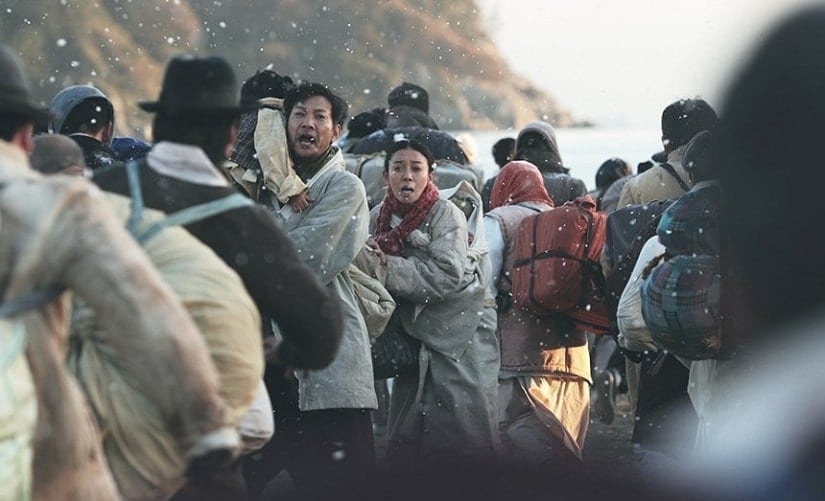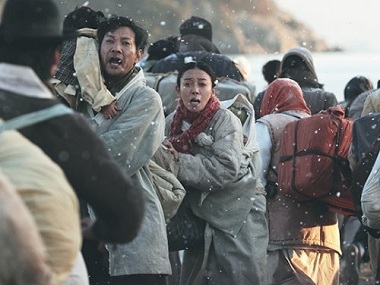You should watch Ode to My Father, the 2014 South Korean melodrama which is the basis of the Salman Khan-starrer, Bharat. When we talk about films from other countries, there’s usually a strain of “Look, even makes such great films. But we keep making masala movies.” Well, Ode to My Father is a timely reminder that the foreign films at the major festivals are only one side of the coin. Not every South Korean filmmaker is a Park Chan-wook, a Lee Chang-dong, a Kim Ki-duk, a Bong Joon-ho. Some of them, like (Ode to My Father director) Yoon Je-kyoon, are just their versions of Ali Abbas Zafar, detested by critics but embraced wholeheartedly by audiences. The Korean culture critic Chin Jung-kwon called Ode to My Father “a low-class tearjerker”. It’s currently the fourth highest-grossing film in South Korean cinema history. You should watch Ode to My Father because it will give you pause the next time you accuse our mainstream cinema of being too sentimental, or emotionally manipulative. Take the opening stretch, which details the separation of a family during the Korean War: as a boy, the protagonist lets go of his sister’s hand, and loses both the sister and their father, who goes looking for her. This drama plays out against the backdrop of the Hungnam Evacuation of 1950, where thousands of commoners in what would come to be called North Korea are whisked away to the south by the US Navy. [caption id=“attachment_6772921” align=“alignnone” width=“825”]  A still from Korean film Ode to my Father.[/caption] Look at the background score. As the boy, the protagonist, walks towards the sea, we hear a mournful cello, and when the camera whips around and shows us the American ships, the percussion shatters our ears. Every step of the way, we are being instructed how to feel. (“Like in our movies,” I might add.) As the masses move towards the sea, the dialogue “explains” everything beforehand, so there’s no confusion about the stakes. The protagonist’s mother says, “Oh no, the Chinese must be right behind us.” A voice from behind adds, “The Chinese have entered Hungnam.” On one of the ships – where tanks, mortar and munitions have taken up all the space – a subordinate pleads with his superior: “General! I beg you. Please have mercy on these people. If you leave them like this, there’s only death left for them.” Compare this scene of chaos with the burning of Atlanta stretch in Gone with the Wind, from 1939, and you’ll see not a fraction of that craft. Ode to My Father doesn’t strive to be art. It just wants to tell a story in a way that tugs at the audience’s heart strings, and if that means cutting away, periodically, to wailing infants, then so be it. (“Like in our movies,” I might add.) As you can probably see, I’m not the greatest fan of Ode to My Father – but I’m glad people are talking about it (if only in the context of an Indian film). It’s important to know that the art-house/mainstream divide exists everywhere. When we think of Swedish films, we think of Ingmar Bergman and his austere, soul-lacerating dramas – especially the trilogy that began with Through a Glass Darkly, continued with Winter Light, and ended with The Silence. But what if I named a more recent trilogy that the Swedes really loved, and made monster hits of! What if I told you their names were Män Som Hatar Kvinnor, Flickan Som Lekte Med Elden and Luftslottet Som Sprängdes! What if I told you the English translations of these names are The Girl with the Dragon Tattoo, The Girl Who Played with Fire and The Girl Who Kicked the Hornets’ Nest! Of course, mainstream fare can be well-made, too – but the staggering success of a very simple-minded melodrama like Ode to My Father tells us something I’ve long believed. The average audience does not care about craft or performances or nuanced screenplays. They want to look at stars. They want scale. They want to be engaged in a broad way. They want to laugh. They want to cry. And they don’t care if some snooty critic calls the film “a low-class tearjerker”. Heck, I was cynically disengaged for about three-quarters of Ode to My Father, and even I found myself tearing up when the protagonist is reunited with his sister many decades later, through a television reality show. It’s manipulation, sure. But sometimes, it breaches your defences and just gets to you. It gets to you when, a little while after getting to safety, the boy asks his mother if she hates him, because he let go of his sister. The mother replies, “Suppose our house is on fire. You’re in the house, and we’re all outside. Then what should I do?” The boy replies, “Of course, you’d come in to save me.” The mother says, “No. If I die trying to save you, who will feed your siblings? It tears my heart to think of your sister, but now I have to look after you and your siblings.” It gets to you when the protagonist, now a young man, begins to talk to his father when he thinks he’s going to die in a mine explosion. He talks about their family, about the mother, the sister that came with them, the brother. “But the one I really want to see right now, isn’t you, or Mom, or my brother or my sister. It’s Youngja.” That’s the girl he’s fallen for. At this dying moment, she’s the one he wants the most. It’s as beautiful a declaration of love as I’ve seen in the movies. Such moments transcend the “is it art?” question. If it gets you, you’re good. Baradwaj Rangan is Editor, Film Companion (South).
The Korean culture critic Chin Jung-kwon called Ode to My Father “a low-class tearjerker”. It’s currently the fourth highest-grossing film in South Korean cinema history.
Advertisement
End of Article


)
)
)
)
)
)
)
)
)



